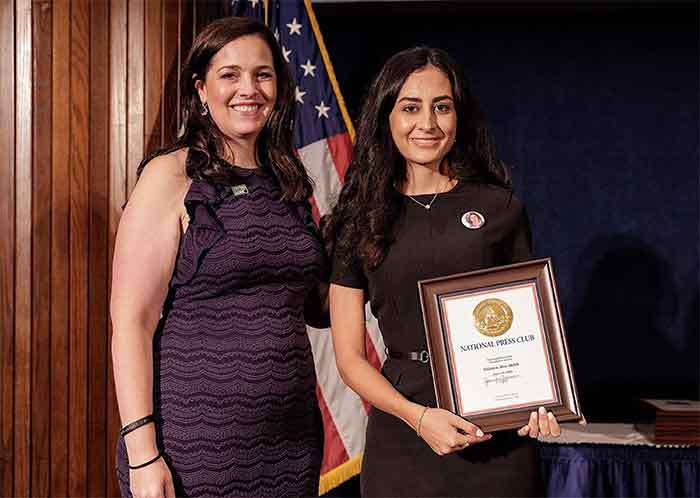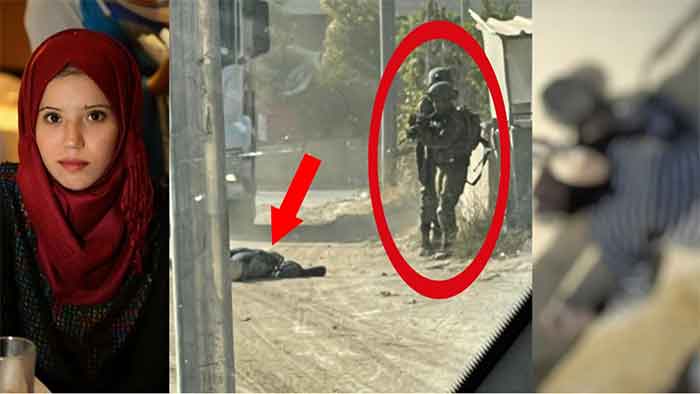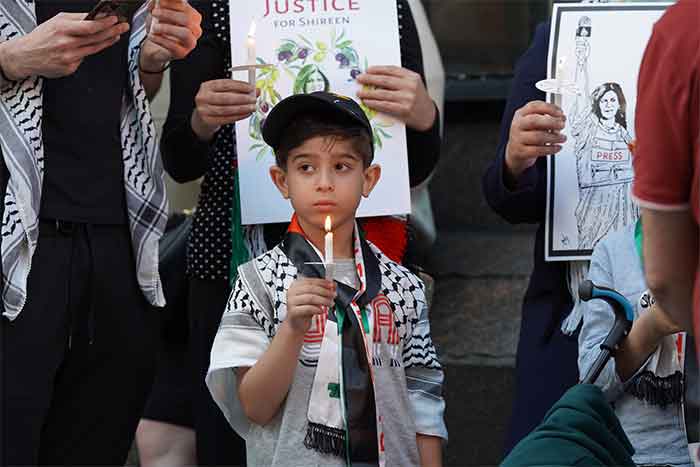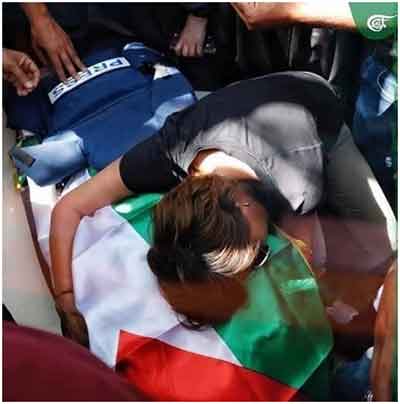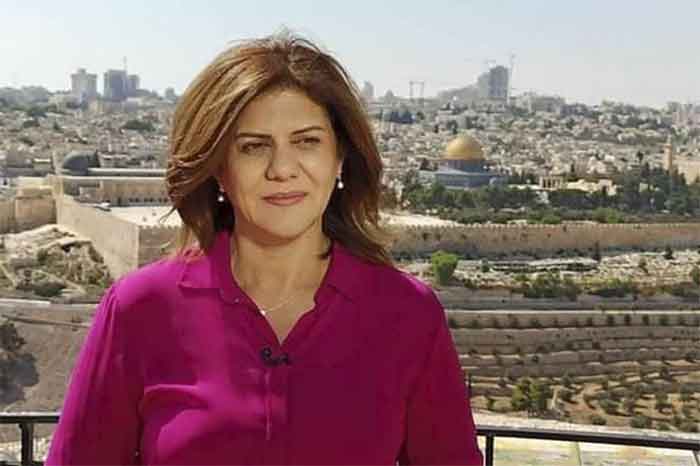
A UN Human Rights Office (OHCHR) investigation has shown that the bullets that killed Al Jazeera journalist Shireen Abu Akleh and injured her colleague Ali Sammoudi, were fired by Israeli forces.
It is a damning refutation of Israel’s preposterous lie about her murder, including that she was shot by Palestinians firing indiscriminately at its troops.
Spokeswoman Ravina Shamdasani told reporters Friday, “All information we have gathered … is consistent with the finding that the shots that killed Abu Akleh and injured her colleague Ali Sammoudi came from Israeli security forces and not from indiscriminate firing by armed Palestinians” and that there was no evidence of “activity by armed Palestinians in the immediate vicinity of the journalists.”
The killing on May 11 of Al-Jazeera Arabic’s widely respected veteran journalist, a US-Palestinian citizen, by Israeli forces while she was covering an army raid on Jenin in the occupied West Bank, caused mass outrage. Clad in a press vest and helmet and standing in open view near a roundabout, she was targeted and shot by Israeli snipers along with her co-producer Ali Sammoudi who was hospitalised.
It was a brazen attempt to intimidate and prevent journalists reporting on Israel’s brutal suppression of the Palestinians. According to the Palestinian Center for Development and Media Freedoms, Israeli troops have killed 30 journalists in the West Bank and Gaza Strip since 2000. In each case, there have been no indictments against the soldiers responsible, testifying to the degree to which US backing guarantees impunity.
Israeli police later stormed her family’s home demanding the mourners take down the Palestinian flags and end the gathering and singing. On the day of the funeral, the police gave the pall bearers such a beating that they nearly dropped the coffin. Soldiers fired sponge-tipped bullets and threw stun grenades at the crowds gathered at the hospital morgue until Abu Akleh’s family were forced to whisk her coffin away in a car as a police officer removed the Palestinian flags covering it.
Shamdasani said the UN Human Rights Office had gone through photo, video and audio material, visited the scene, consulted experts, reviewed official communications and interviewed witnesses. She confirmed that the Al Jazeera reporter along with her fellow journalists had made a real effort to be clearly visible as members of the press to Israeli soldiers. She said, “The journalists said they chose a side street for their approach to avoid the location of armed Palestinians inside the camp and that they proceeded slowly in order to make their presence visible to the Israeli forces deployed down the street.”
Shamdasani said, “Our findings indicate that no warnings were issued and no shooting was taking place at that time and at that location. Several single, seemingly well-aimed bullets were fired towards them [the journalists] from the direction of the Israeli security forces.” Furthermore, bullets continued to be fired at an unarmed man who tried to help Abu Akleh, as well as a journalist who was sheltering behind a tree. At least 16 shots were fired in total.
She concluded, “It is deeply disturbing that Israeli authorities have not conducted a criminal investigation.”
The UN Human Rights Office report follows an investigation by the Palestinian Authority (PA) published May 26 that arrived at the same conclusion from the autopsy and an examination of the armour-piercing bullets that hit Abu Akleh and Sammoudi. Palestinian officials accused Israel of killing her deliberately, citing the fact that she had been shot in the head even though she was wearing a vest clearly identifying her as a journalist. Palestinian officials have refused to cooperate with any Israeli investigation or hand over the bullets, knowing full well that any such inquiry will allow the soldiers responsible to get off scot-free.
There have been at least five other investigations into Abu Akleh’s death published in international media outlets, including the New York Times, the Washington Post, CNN and the Associated Press, all of which have subjected witnesses’ statements and the video clips to extensive forensic examination by experts and confirmed Israel’s responsibility for her killing.
Israeli officials variously charged the Palestinians with responsibilityboth directly and indirectly—for Abu Akleh’s death and denying any possibility that Israeli troops had killed her since “the army opens fire only in an orderly, controlled manner,” while others even blamed the journalist for her own death, claiming she was just a paid agent of terrorists.
Later as Israel’s Prime Minister Naftali Bennett realized that Abu Akleh’s murder was turning into a public relations disaster, officials went into damage control mode, proposing a joint Israeli-Palestinian investigation.
There would be a police investigation into the attack on the pallbearers carrying Abu Akleh’s coffin out of the hospital morgue. But its outcome was determined in advance. While it found that the handling of the event amounted to police misconduct, none of the commanders in charge of the incident would be disciplined in line with a decision made prior to the investigation. Israel’s Police Commissioner Kobi Shabtai told a lawyers’ conference in Tel Aviv, “The bottom line is that the conduct of police officers there was wrong, but not every investigation has to end with heads rolling.”
Eventually, the army accepted the “possibility” that Israeli gunfire had “inadvertently” killed the veteran journalist. However, the military’s advocate general ruled against a criminal investigation by the military police since the incident was a “combat event” with no suspicion of a criminal offense, even though she was a journalist killed in the line of duty.
This is a clear breach of the order put in place in 2011 that requires an investigation into every case of a death in the West Bank, except in a clear case of thwarting of a terror attack or the death of an armed individual during an exchange of fire. Israel has always used this order as the basis for its claim that it is capable of investigating itself, despite few indictments ever following.
Instead, as a sop to international public opinion, an army spokesperson promised a “thorough examination” of the events—with the proviso that without the PA handing over the bullet removed from Abu Akleh’s body it would be impossible to establish the truth.
Israel’s paymaster in Washington rushed to support its regional policeman, rejecting any responsibility to investigate the death of an American citizen, only belatedly echoing Israel’s call for a joint Israeli-Palestinian inquiry, since changed to “an independent, credible investigation.”
According to the army’s own data released in response to a freedom of information request and analysed by Yesh Din, an Israeli human rights organisation, only five (7.2 percent) of all internal military investigations opened in 2019-20 resulted in criminal indictments, and only 2 percent of the complaints received led to the prosecution of a suspect, up from 0.7 percent in 2017-18. The punishment, usually for low level offences rather than manslaughter or murder, typically result in a trivial punishment. The total number of investigations by the army is declining each year.
Abu Akleh’s death is to be added to a legal complaint by the International Federation of Journalists, the Palestinian Journalists’ Syndicate and the International Centre of Justice for Palestinians to the International Criminal Court (ICC). It relates to four Palestinian journalists wearing press helmets and vests—two killed and the other two maimed—and the attacks on international media buildings in Gaza in May 2021. The case argues that Israeli security forces have systematically targeted Palestinian journalists in violation of international humanitarian law and failed to investigate such incidents.
Al Jazeera has referred the case to the ICC, vowing to bring the killers to justice using all available legal means. Israel has dismissed this, saying that as it is not a signatory to the Rome Statute it is not subject to the court’s mandate and outside the court’s jurisdiction as Palestine is not a state. In February 2021, the ICC said its jurisdiction did extend to Gaza and West Bank, making it more likely the ICC can take up the issue.
Originally published by WSWS.org

